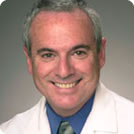 Real estate investing for physicians; The worst of times... The best of times.
Real estate investing for physicians; The worst of times... The best of times.
With apologies to Charles Dickens and A Tale of Two Cities, when it comes to real estate investing, this is truly the worst of times and the best of times. I’m sure you’ve heard the adage of real estate investing – “location, location, location.” Well I’m here to say that just as important is “timing, timing, timing!”
To explain, let me wind the clock back to the wild and wooly 1980’s. That is when I made my first foray into real estate investing. At the time, I was the director of multiple hospital emergency departments and was flush with the success of our multi-site outpatient urgent care/occupational medicine/multi-specialty centers. With the hubris that only a physician can muster, I assumed that my successes with medical entrepreneurship would easily translate into other business ventures.
So I started investing in real estate.
One of the first markets we entered was a wine-growing, newly burgeoning bedroom community about an hour from the Orange County/Los Angeles hub of Southern California – Temecula. The area was red-hot! – land values were skyrocketing, businesses were flocking to the area, and the rental market was alive and well. As my wife and I were driving to Temecula, we saw a mile-long line of traffic backed up on to the highway, waiting to exit to the downtown area. I excitedly commented, “Look honey, there’s so many people wanting to live and work here, they can’t even get off the freeway!” My wife just said, “Hmm, that could be a problem.” But I pushed ahead and quickly purchased over a million dollars worth of vacant land parcels, a small rental house and a five acre mini-estate home.
Now, let’s fast forward two years. The red hot market continued to appreciate, then topped and quickly became an ice age of falling house and land values coupled with an oversaturated rental market. Opportunities to sell the properties at top dollar evaporated, refinancing dried up and it was a challenge to keep rentals occupied.
So what did I learn from this humbling experience? First, listen to my wife. Second, my previous medical business triumphs did not automatically endow me with the abilities to succeed in other arenas – I needed mentoring, more education and a lot more research. Third, timing was everything – the backed up freeway exit should have told me that the town had not created a sufficient infra-structure to handle the population growth.
So let’s come back to the present day. Over the past two to three years, real estate investing has gone from the darling of cocktail party banter to the subject of head-shaking and hand-wringing. In many ways, this is the worst of times. Values continue to drop, rental rates are staggering, and the lending environment is stifling –sound familiar?
But it’s also the best of times. Properties can be purchased at very low percentages of true market value, credit is available if you know where to look, and if structured correctly re-sales can be expedited to willing buyers.
The current trend becomes easier to understand if you step back and look at real estate as a cyclical phenomenon – typically repeating five discrete stages: flat market, initial appreciation, accelerating appreciation, topping, and depreciation. We are obviously currently in the final stage – depreciation, i.e. decreasing house and land values.
So in this scariest of times, what can you do? Learn the lesson of timing and put your money to work in the one property type that is working well now – foreclosures. A lot more on that in my next post.
Read Part 2: Real Estate Investing For Physicians - Real Estate Auctions >
 Emergency Medicine News had a recent article looking at the growing trend of physician bloggers.
Emergency Medicine News had a recent article looking at the growing trend of physician bloggers.




 Post a Comment
Post a Comment




